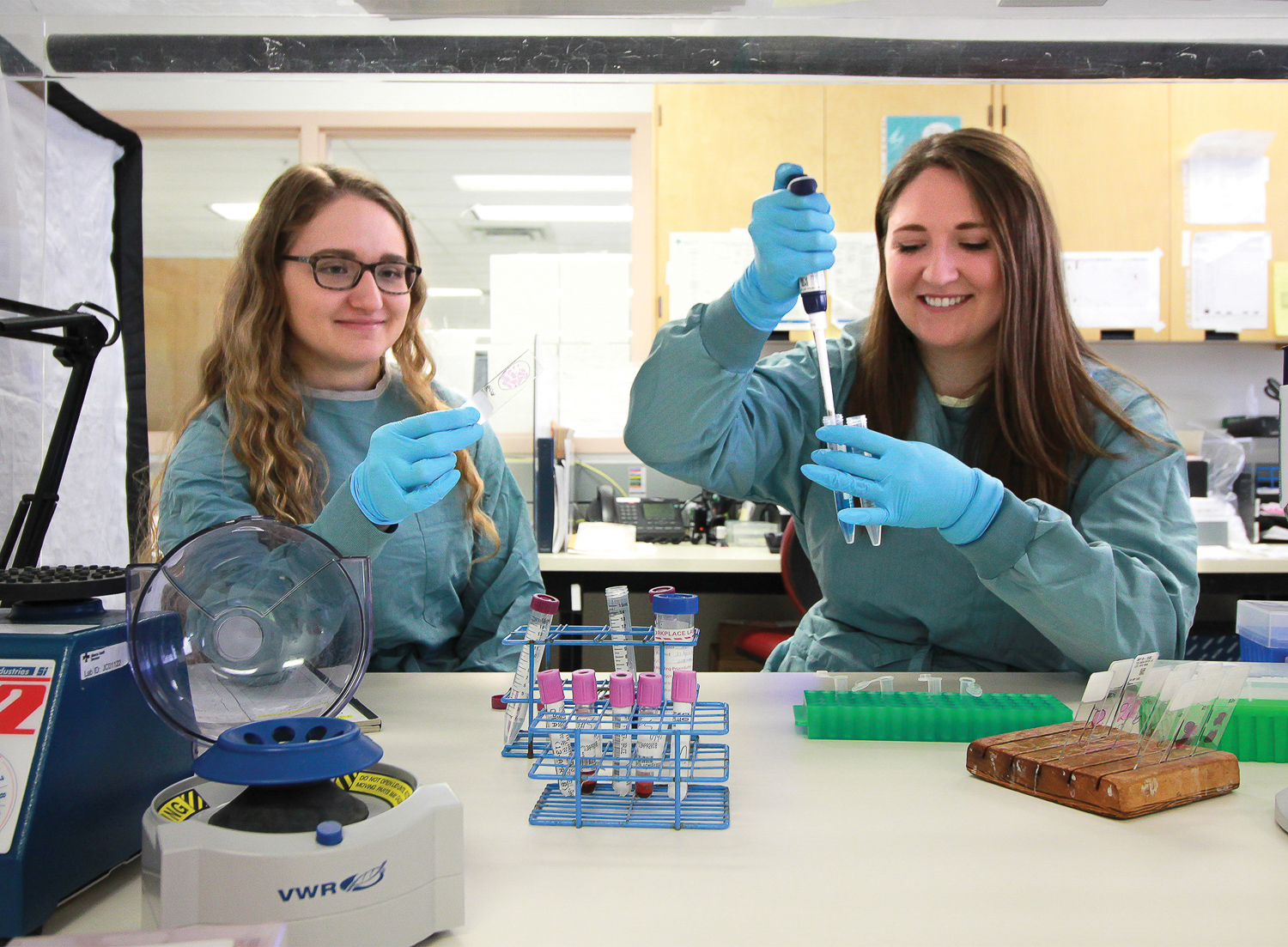
Nikki Yurkiw and Rachel McKellar, medical laboratory science graduates from the class of 2018. Photo by: Melissa Fabrizio
With big data, artificial intelligence and precision health making strides in medical research and practice, the University of Alberta's Medical Laboratory Science (MLS) program is in the midst of major changes to ensure graduates entering the profession are ready to hit the ground running.
"We need to be developing lab professionals who will be change agents, and who can help other health professionals manage the technology," said Lisa Purdy, program director.
It's in the final undergraduate year of the MLS program that the most sweeping curriculum changes appear with a series of new courses-most offered in a blended fashion with online didactic learning followed by hands-on in the lab-focused on advanced training in processes such as mass spectrometry and flow cytometry. Neither of these are new technologies, but they are continually being called into action in new and different ways, making up-to-date training crucial.
"We want our students to get their hands on those instruments and become really proficient at using them, to address the growing need in clinical service," said Purdy
To get ahead of the demand, Purdy is also creating a new master's degree in Medical Laboratory Science. The graduate program is so ahead of the curve, she said, it will "create a professional that Alberta Health Services may not yet even have a job description for."